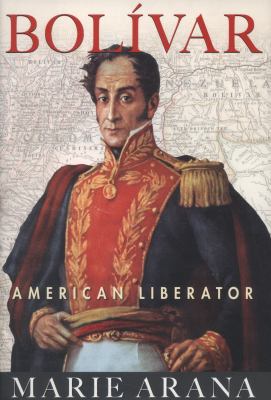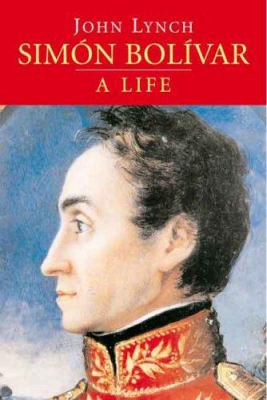
On July 24, Simón Bolívar Day is celebrated throughout several Latin American countries. The Caracas born leader, nicknamed "El Libertador" (the liberator), is credited for helping nations become independent from Spain. Bolivar was also known for rejecting slavery and called for its abolition in the Americas. Bolívar was born in Caracas, Venezuela, on July 24, 1783. Educated by private tutors in Caracas, and also in Spain, Bolívar was profoundly influenced by the French political philosopher Jean Jacques Rousseau. Bolívar fought under the command of Francisco de Miranda, who led the revolt against the Spanish in Venezuela in 1810. The rebels were defeated by the Spanish royalists, and Bolívar was forced to flee the country. In 1812 he led another expedition to Venezuela. He captured Caracas in 1813 and assumed dictatorship. Royalist forces defeated him again in 1814, and he was forced into exile in Jamaica and later in Haiti.
Charleston County Public Library has a few resources to help you learn more about Bolívar. More information about Bolívar's history can be found through our databases on this entry of the Funk & Wagnalls New World Encyclopedia or this entry from the Columbia Electronic Encyclopedia.
In 2013, Marie Arana discussed the life of Simon Bolivar during a special presentation with the Library of Congress in celebration of the publication of her book, "Bolivar: American Liberator," which can be checked out from CCPL. Check out that title and others about Bolivar below.
 Bolivar: American Liberator by Marie Arana
Bolivar: American Liberator by Marie Arana
A sweeping narrative worthy of a Hollywood epic, this is the authoritative biography of the warrior-statesman who was the greatest figure in Latin American history.
It is astonishing that Simón Bolívar, the great Liberator of South America, is not better known in the United States. He freed six countries from Spanish rule, traveled more than 75,000 miles on horseback to do so, and became the greatest figure in Latin American history. His life is epic, heroic, straight out of Hollywood: he fought battle after battle in punishing terrain, forged uncertain coalitions of competing forces and races, lost his beautiful wife soon after they married and never remarried (although he did have a succession of mistresses, including one who held up the revolution and another who saved his life), and he died relatively young, uncertain whether his achievements would endure.
Drawing on a wealth of primary documents, novelist and journalist Marie Arana brilliantly captures early nineteenth-century South America and the explosive tensions that helped revolutionize Bolívar. In 1813 he launched a campaign for the independence of Colombia and Venezuela, commencing a dazzling career that would take him across the rugged terrain of South America, from Amazon jungles to the Andes mountains. From his battlefield victories to his ill-fated marriage and legendary love affairs, Bolívar emerges as a man of many facets: fearless general, brilliant strategist, consummate diplomat, passionate abolitionist, gifted writer, and flawed politician. A major work of history, Bolívar colorfully portrays a dramatic life even as it explains the rivalries and complications that bedeviled Bolívar's tragic last days. It is also a stirring declaration of what it means to be a South American.

Simón Bolívar: A Life by John Lynch
Simón Bolívar was a revolutionary who freed six countries, an intellectual who argued the principles of national liberation, and a general who fought a cruel colonial war. His life, passions, battles, and great victories became embedded in Spanish American culture almost as soon as they happened. This is the first major English-language biography of "The Liberator” in half a century. John Lynch draws on extensive research on the man and his era to tell Bolívar's story, to understand his life in the context of his own society and times, and to explore his remarkable and enduring legacy.
The book illuminates the inner world of Bolívar, the dynamics of his leadership, his power to command, and his modes of ruling the diverse peoples of Spanish America. The key to his greatness, Lynch concludes, was supreme will power and an ability to inspire people to follow him beyond their immediate interests, in some cases through years of unremitting struggle. Encompassing Bolívar's entire life and his many accomplishments, this is the definitive account of a towering figure in the history of the Western hemisphere.
